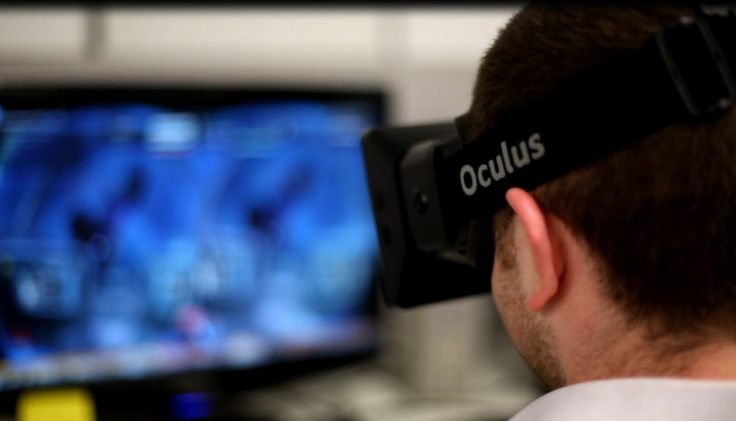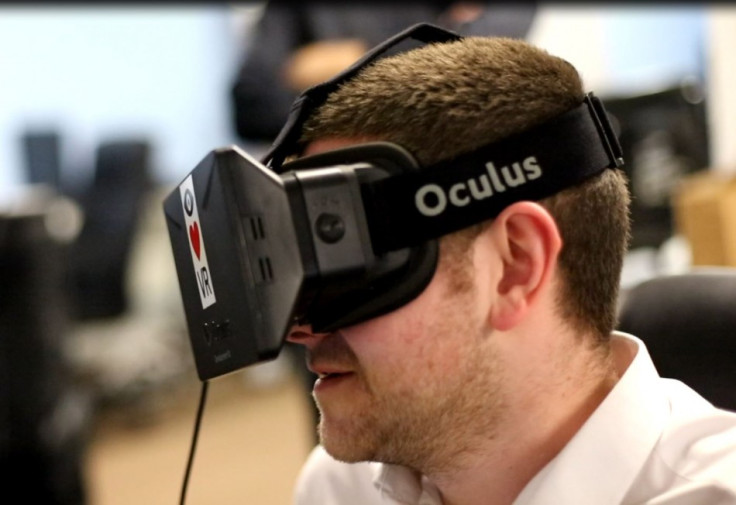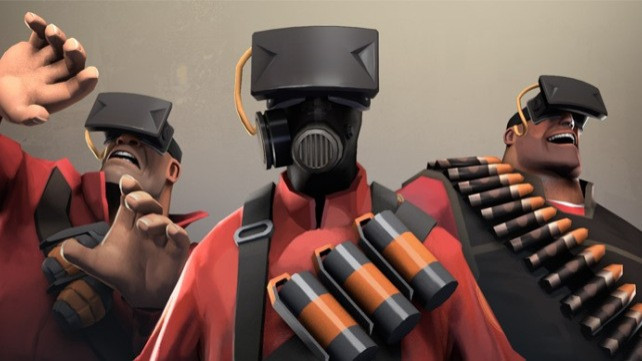Oculus Rift Preview: 'It's Not Revolutionary, it's Much More Important Than That'
As Sony and Microsoft start preparing the new wave of consoles, we try out the Oculus Rift, a virtual reality headset designed for the next generation of gaming

It's easy to get suckered into new, so-called "revolutionary" hardware. The biggest, most recent example is the Wiimote, a motion sensitive controller from Nintendo which, when it launched in 2006, was set to change the world. Consumers, developers and even Microsoft and Sony flocked to it; now, less than seven years later, it's dead. Nintendo's credibility is on the wane and the Kinect and Move are both leftovers.
On paper, the Rift by Oculus looks similarly ill-fated. It's ambitious, it's novel - like lightguns, dancemats and Guitar Hero before it, it looks like something that might inspire a few years' of gold rush before petering out forever. That's until you actually use it.
A lightweight headset that slips over your face like goggles, it feeds the image of whatever game you're playing straight into your eyes. It detects motion as well, so when you turn or pitch your head, you character's head turns with it, meaning you can look around 360 degrees in real time. Horrible buzzword, but it really does make things more "immersive". During my hands-on, in a tech demo, I walked to the edge of a high building and looked down - physically looked down. Fooled by the image from the Rift and the fact I was actually moving my head, my brain was convinced I was actually looking at a sheer drop and I started to feel dizzy. Standing behind a chair, I struggled to not reach my hand out and try and touch it. I'm someone who's been playing games and fiddling with hardware for decades, and the Rift had even me fooled.
Possibilities
Another cliché, but the possibilities here are endless. We've already seen devs like Valve and Epic talk about putting the Rift to work, and demos showing it working with Minecraft and Garry's Mod. There are going to be a lot of games in the next generation with Rift support, but also, it has broader applications. You might have seen that Wii U Panorama thing Nintendo has just launched with its latest firmware update. It features live action videos shot from a first-person perspective of flashy little events like the Rio carnival or a tour atop a London double-decker bus, the sell being that you can look around in 360 degrees using the second screen on the Gamepad. Rift is going to be like that, but better. I can see people making movies for it, TV shows. This isn't just going to be a must-have for gaming and hardware enthusiasts - I think Oculus Rift could become a household name.

But let's row back some, because all this talk of Rift being "revolutionary" is dangerous. It might still flop, making early yea-sayers like me look daft. It's also not, I don't think, "revolutionary"; the Rift's greatest strength is that it solves a simple problem in a - seemingly - simple way.
This isn't a full virtual reality suite. Movement and actions like, say, firing guns are still controlled via a traditional joypad, while the Rift just tracks your head movements and adds some peripheral vision. And that's its greatest strength. A motion sensitive body suit or gloves or shoes or something wacky would be dead on the market in months, but Rift solves a small, important problem, that moving your head in games feels slow and unnatural, and just leaves it there. Without wanting to belittle Oculus' work, it's more an optimisation than a revolution; without wanting to blow it out of proportion, the difference it makes is absolutely incredible.
Rollercoaster
Another game, space dogfight sim Strike Suit Zero, showed the Rift on full form. From the first-person perspective of a crammed spaceship cockpit, I could turn my head all the way around to watch debris floating by, ships whizz past and missiles incoming. Swooping and banking felt like being on a rollercoaster. Without the sluggish right analogue stick to depend on, the whole fight got much more frantic. It felt less safe. With the stick, there's a distance between you and what's happening; you're pressing buttons; it's not physical. But with the Rift, I had to work to stay alive. I had to crane my neck, shake my head, look up, down and side to side. For a final cliché, it felt like I was really there, and being really there in the middle of a shootout is damn exciting, and scary. I'd love to try the Rift with a first-person shooter.

In summary, Rift will make a change. The problem with those other "revolutionary" peripherals is that they threaten games as they are, and people really like games as they are. They don't want to ditch their joypad for a Wiimote or their couch for the Kinect. Rift will succeed by adding a very functional, very exciting extra layer onto something that people already enjoy; it will complement and improve rather than replace.
My time with the Rift was relatively short, but first impressions are super positive. It's comfortable, it works and it doesn't feel weird. It's not like the Move or the Wii where you feel like you have to forego certain games for the sake of some peripheral. Rift is like seasoning; it's an improver. If Oculus can get it out at a modest price, and enough developers run with it, the Rift could become standard issue for all games.
The Oculus Rift is not revolutionary. It's much more important than that.
© Copyright IBTimes 2025. All rights reserved.






















